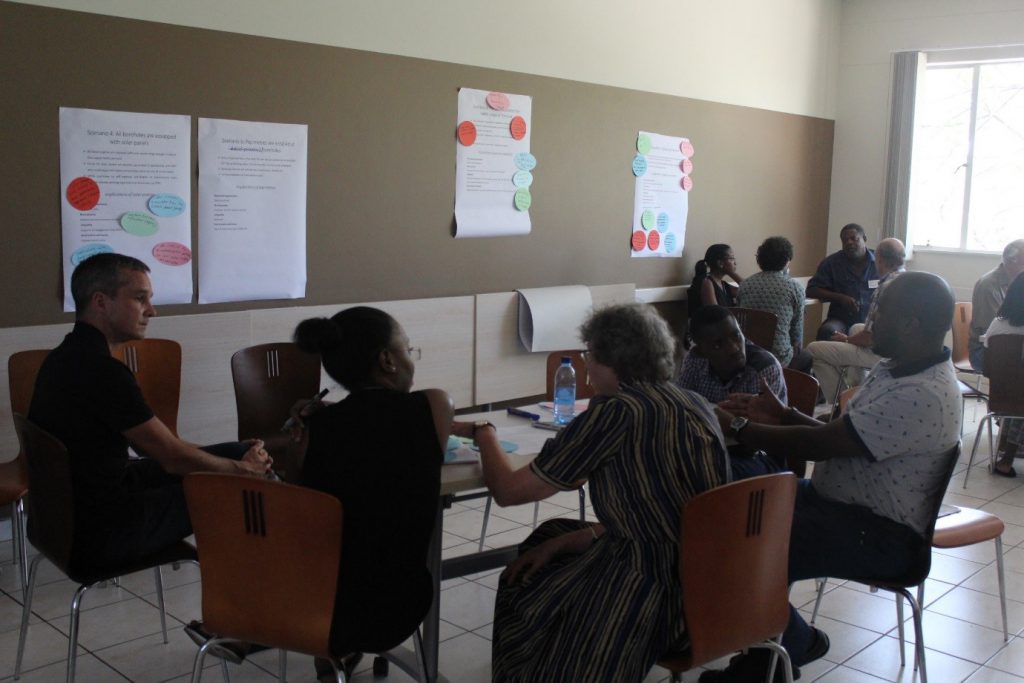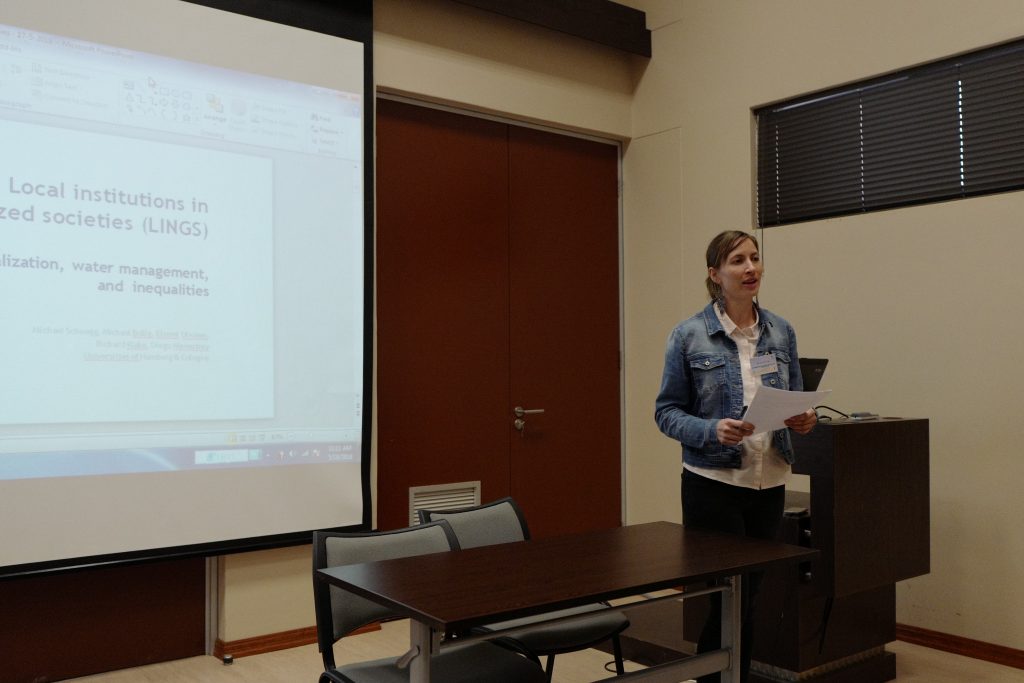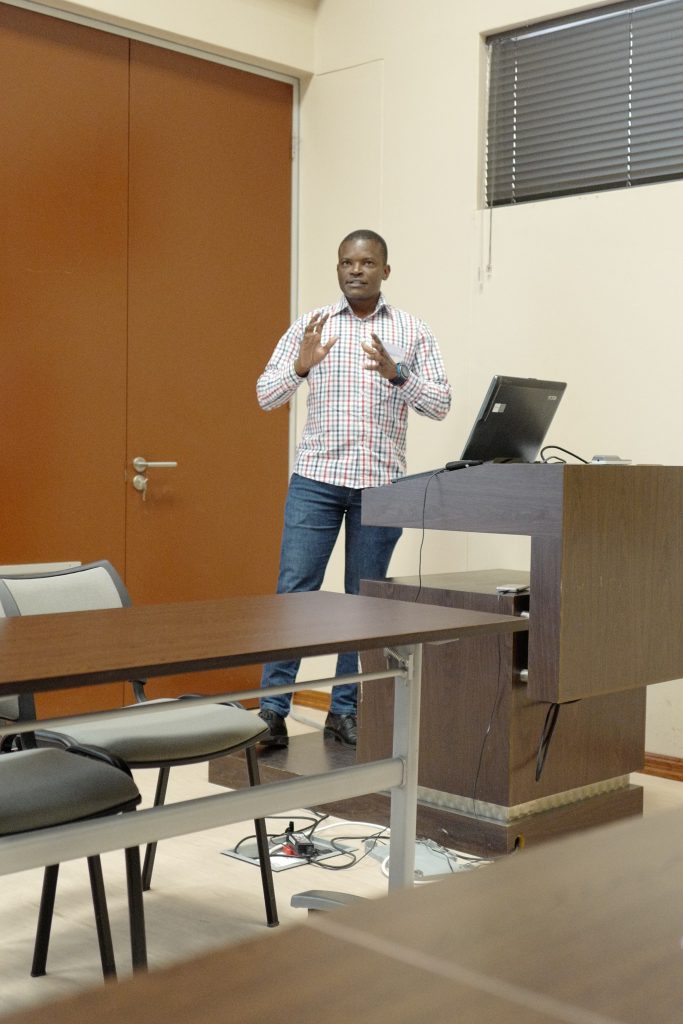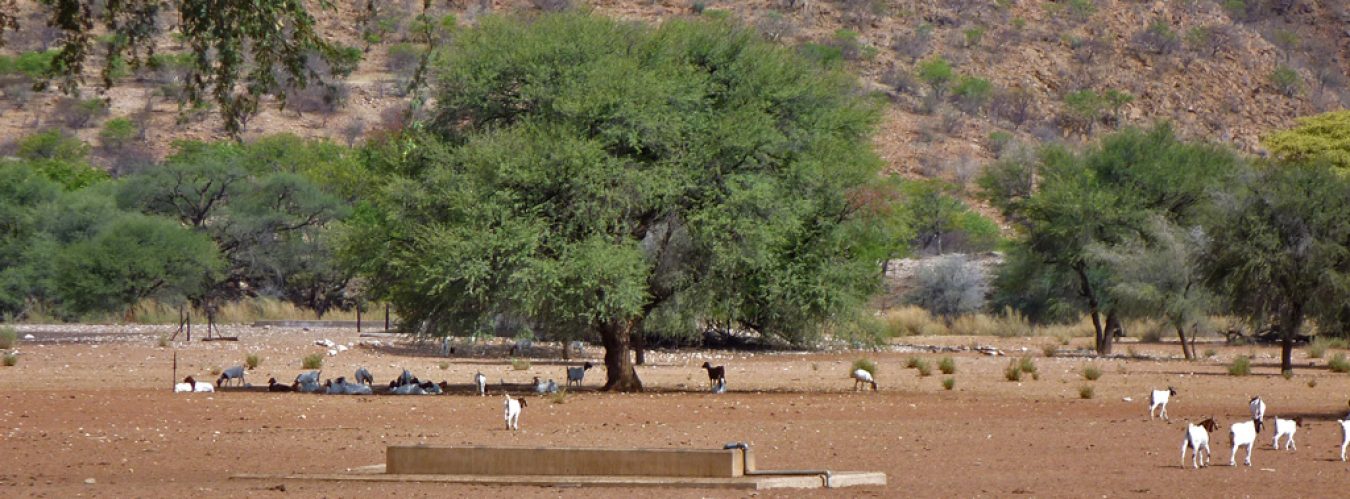The LINGS-Project is intensifying its attempts to communicate its results with different audiences. Those include the scientific community, decision makers in Namibia and the local communites we work with.
Workshop: Sharing the Findings with Key Stakeholders

On 28th November, 2018, the LINGS team together with the Desert Research Foundation of Namibia (DRFN), organized a one-day workshop aimed at sharing the project’s main findings with key stakeholders in policy and development in Namibia. Participants included representatives from government agencies and NGOs working on issues related to rural water supply and community-based resource management. Having presented the findings, the LINGS team suggested five future scenarios for decentralized rural water-supply, which were further discussed by participants. This helped to collectively interrogate the usefulness of LING’s findings in informing rural water policy in Namibia. Further dissemination of the findings to the public and relevant government institutions was encouraged.
IGU Commission on Africa n Studies Inaugural Conference at the University of Namibia, May 17-18
Linking CBNRM, Inequalities and Rural poverty in Namibia and southern Africa

Community Based Natural Resource Management (CBNRM) has been institutionalised and implemented in Namibia, mostly through communal conservancies, for at least two decades, especially in the communal areas of the north-west (Kunene) and north-east (Zambezi) regions. A fundamental objective of CBNRM has been to contribute to rural poverty alleviation by addressing socioeconomic and political inequalities and redressing colonial and apartheid dispossession and disenfranchisement. Although having emerged from local conservation initiatives and locally-designed, CBNRM in Namibia as well as in the broader southern African region has also been strongly shaped by global para digms and discourses on decentralisation, participatory governance, rights and common property management.

The aim of the panel is to critically and constructively consider how CBNRM, in its intersections with decentralised land and water governance, alleviate, (re)produce or change conditions and experiences of rural poverty and inequality. Special focus will be given to considering the crucial role of local actors, institutions and specific historical and socio-material contexts in co-determining how CBNRM and decentralisation reforms take root, are practiced and valued across different locales.
The panel brings together input from research projects done on CBNRM and communal land reform in different parts of Namibia, as well as from other parts of southern Africa. The panellists are composed of both Africans and non-Africans conducting research primarily in Namibia but also in the wider southern Africa region.
Presentations:
Prof. Michael Schnegg, Teresa Linke, Richard Dimba Kiaka, Michael Bollig, Elsemi Olwage, Dr. Diego Menestrey Schwieger: „Local Institutions in globalized societies: Decentralization, Water management and inequalities in communal farming areas in Kunene Region, North- western Namibia.“
Dr. Diego Menestrey Schwieger: „Factors influencing local dynamics of poverty and social inequality in interrelation with the rural water decentralization reform.“
Richard Dimba Kiaka, Prof. Michael Schnegg: „Elephant population growth and communitybased water governance in Namibia.“
Elsemi Olwage: „(Im)mobile cartographies: uncertain tenure, collective-resource management and the politics of exclusion.“
Dr. Julie Silva: „“Now that the Animals have their Independence”: The impacts of Wildlife Conservation on inequality in Namibia and Mozambique.“
Rodgers Lubilo: „Struggles over control of resources and challenges of co-existing institutional repertoires in communal conservancies in Zambezi Region“

